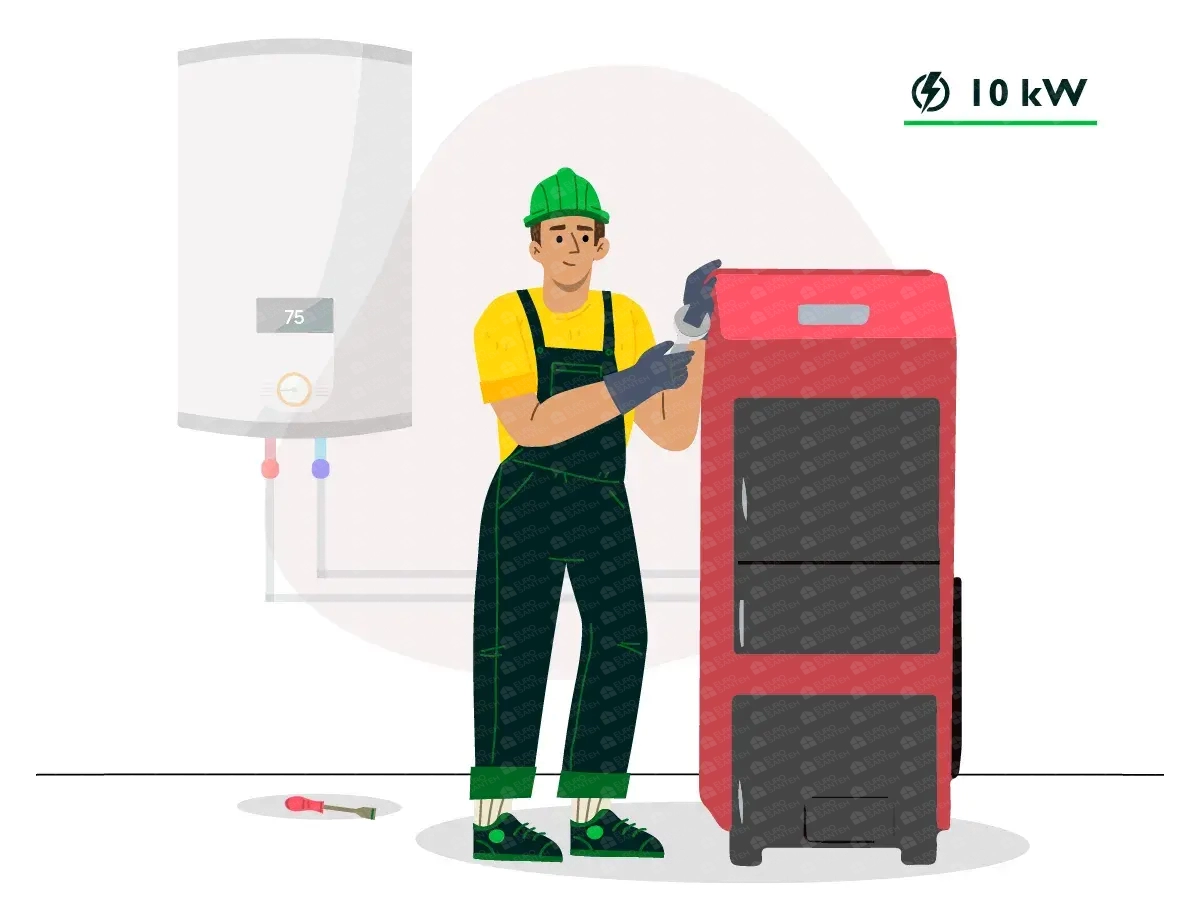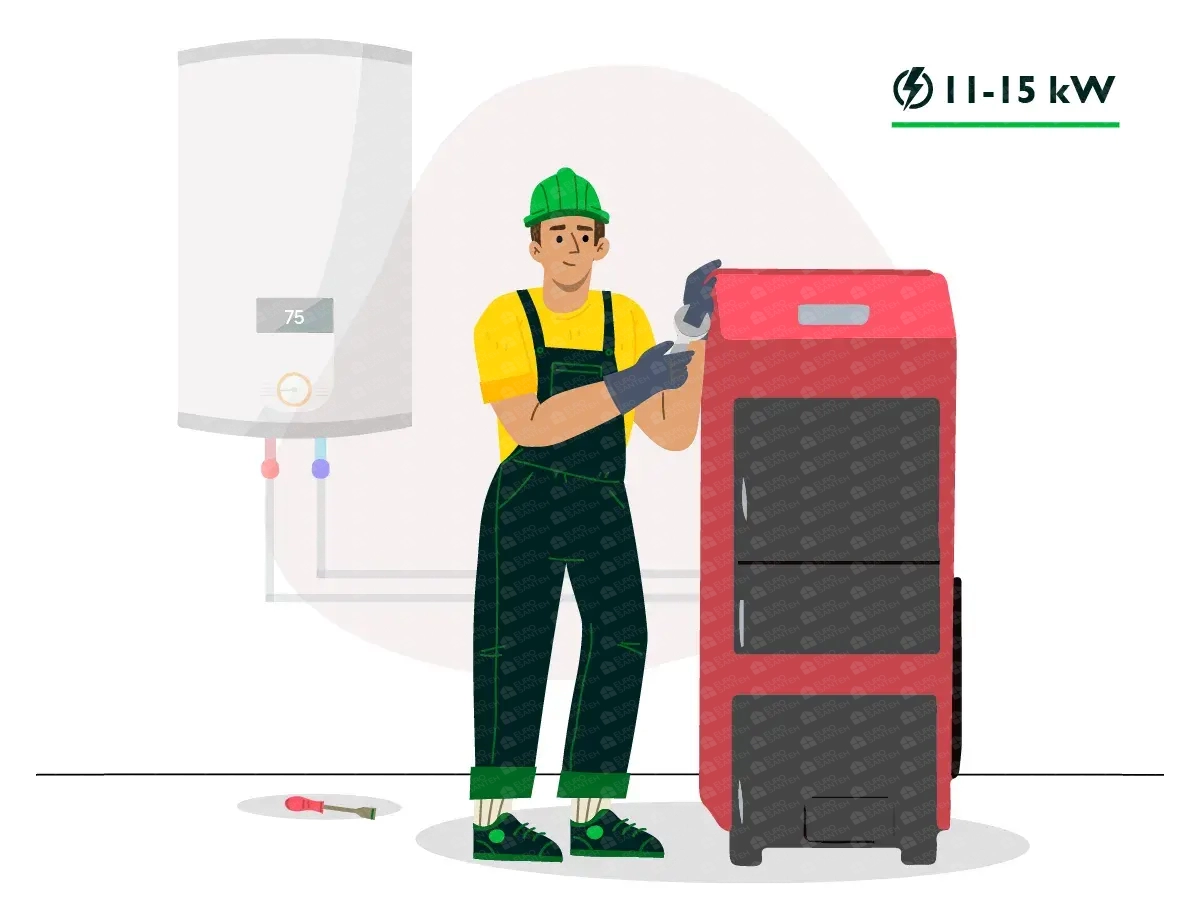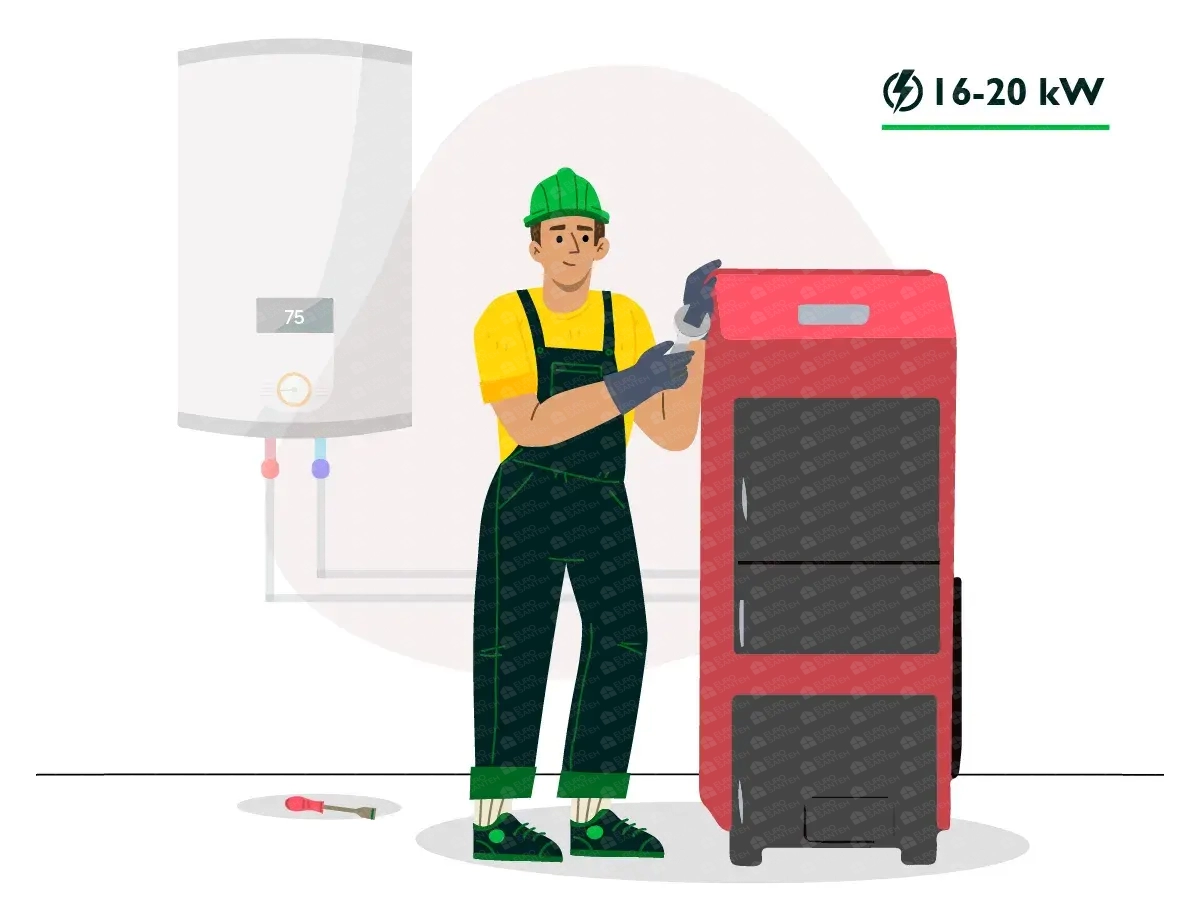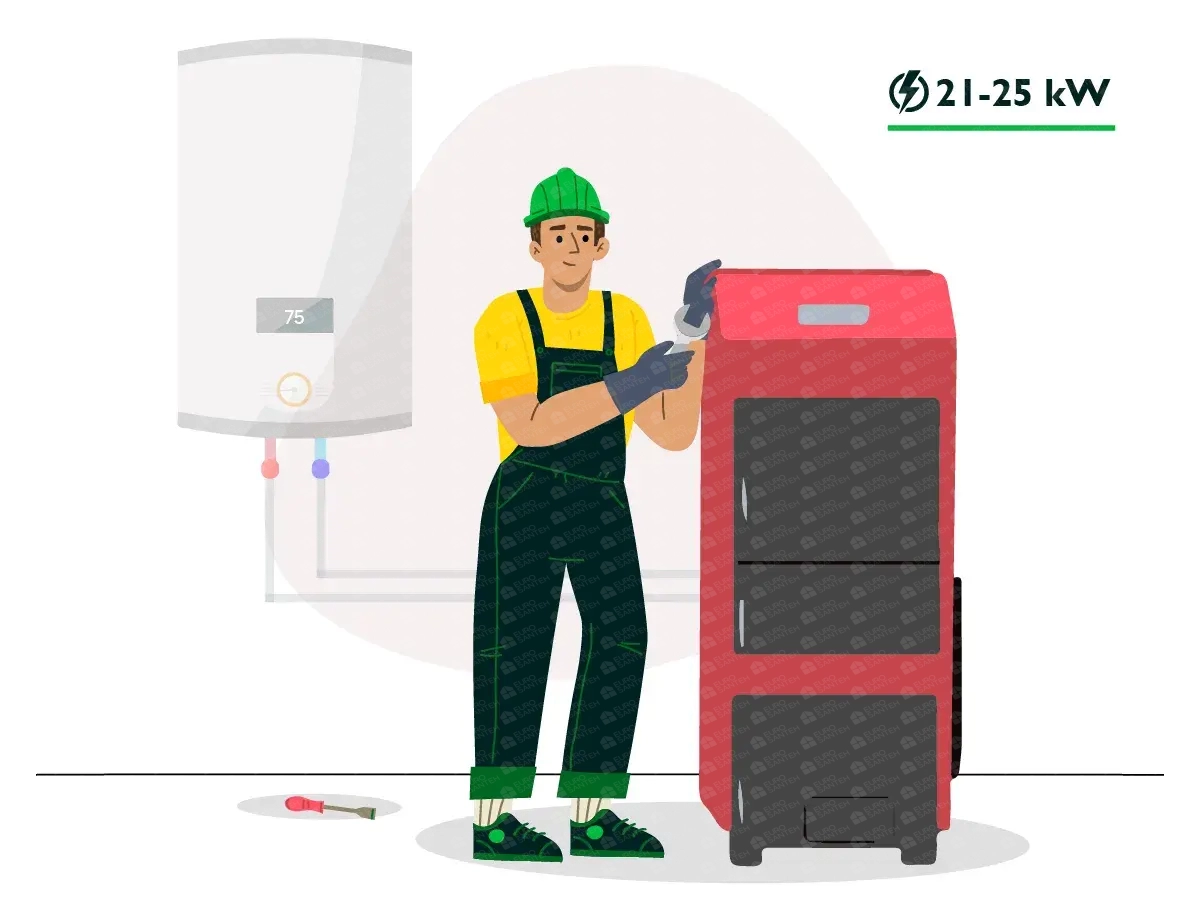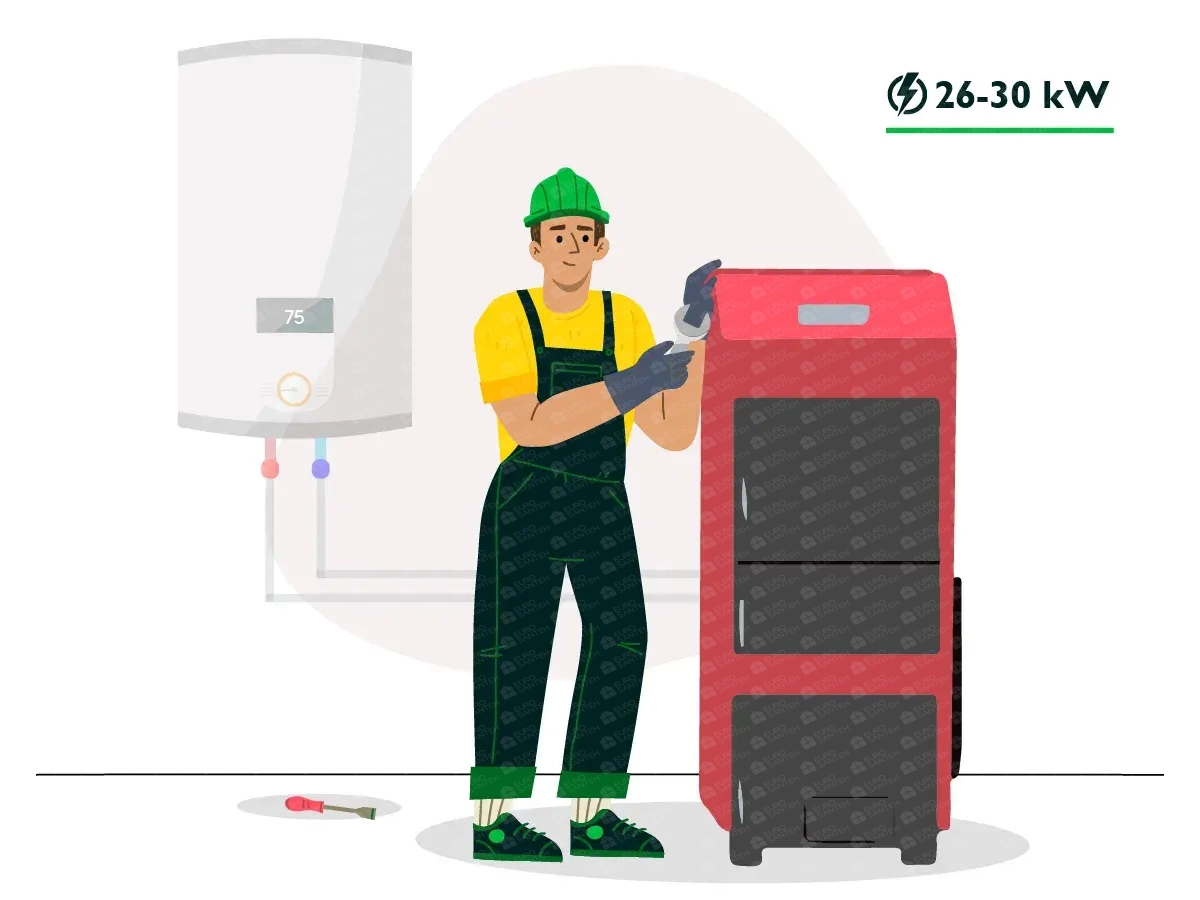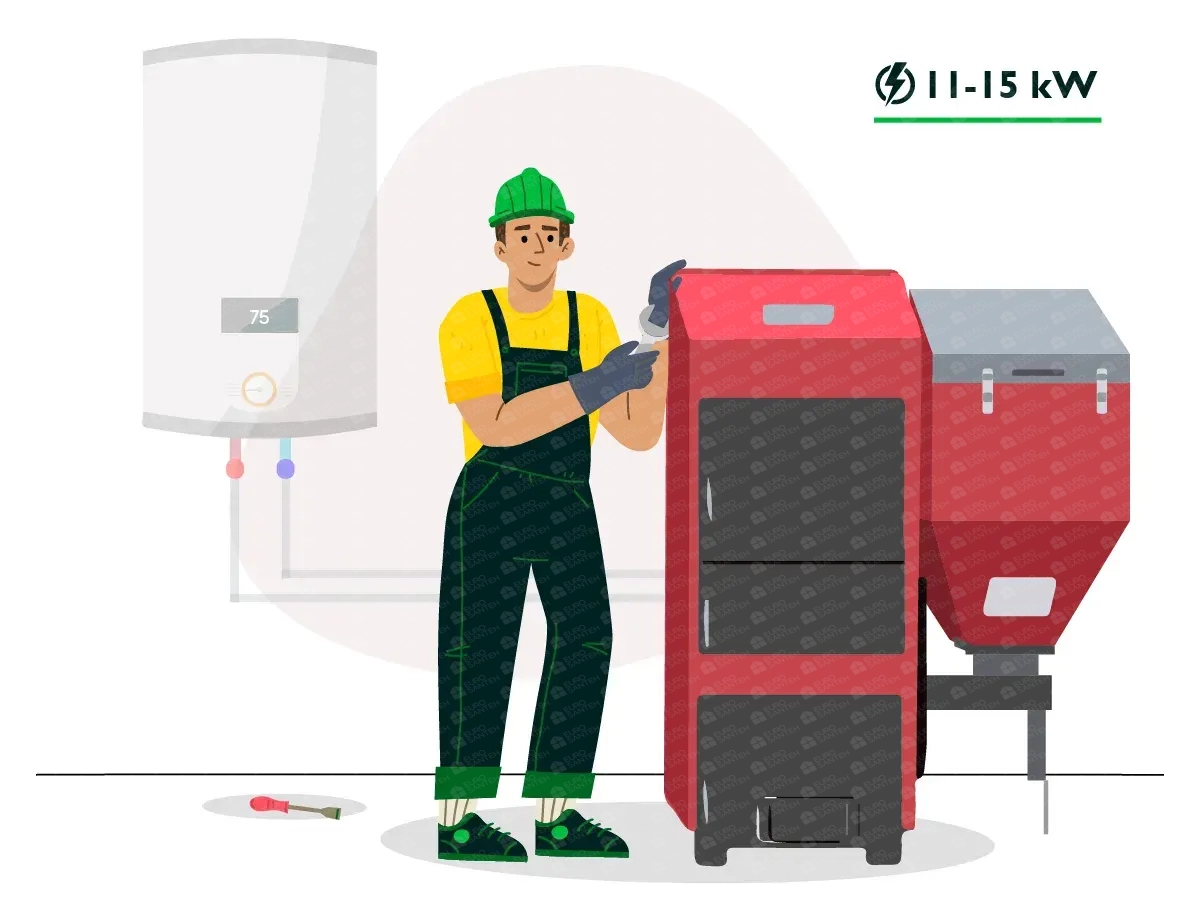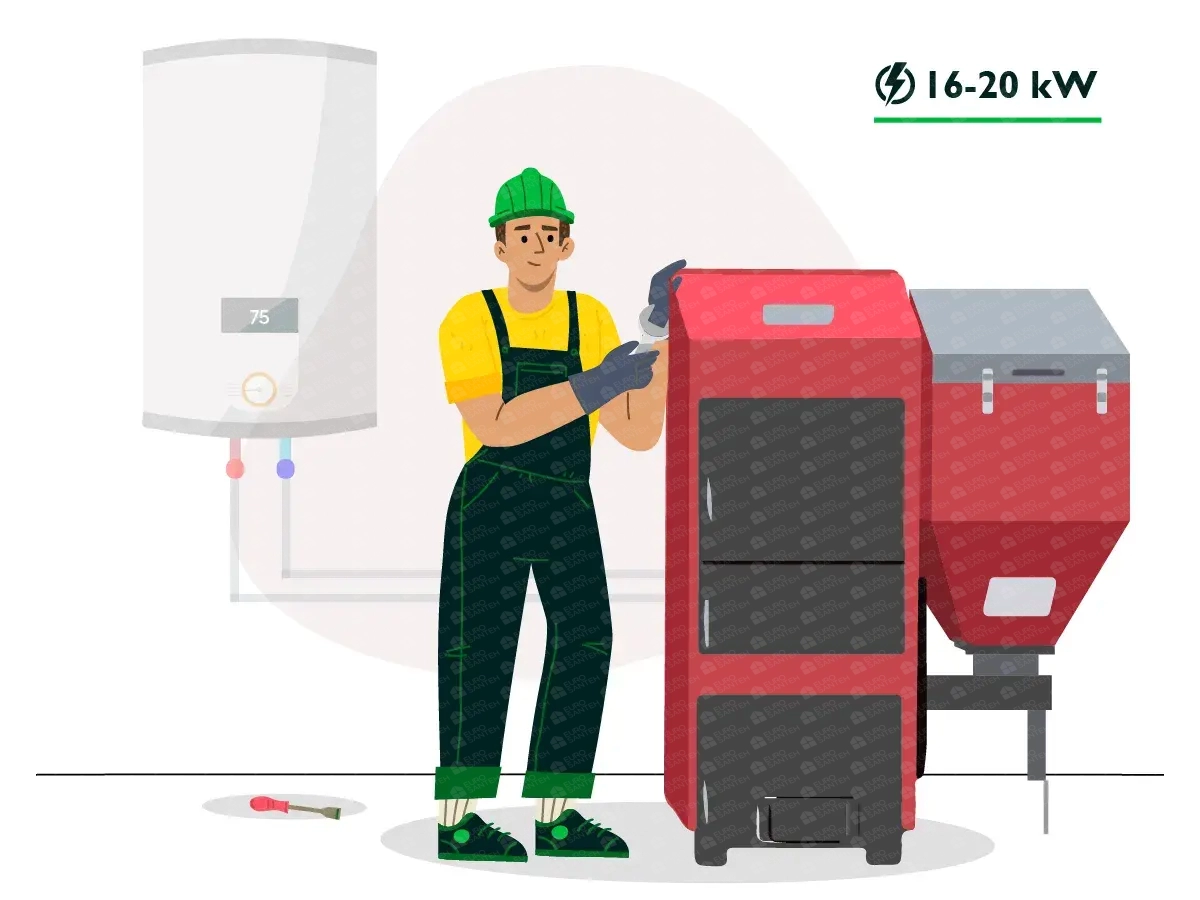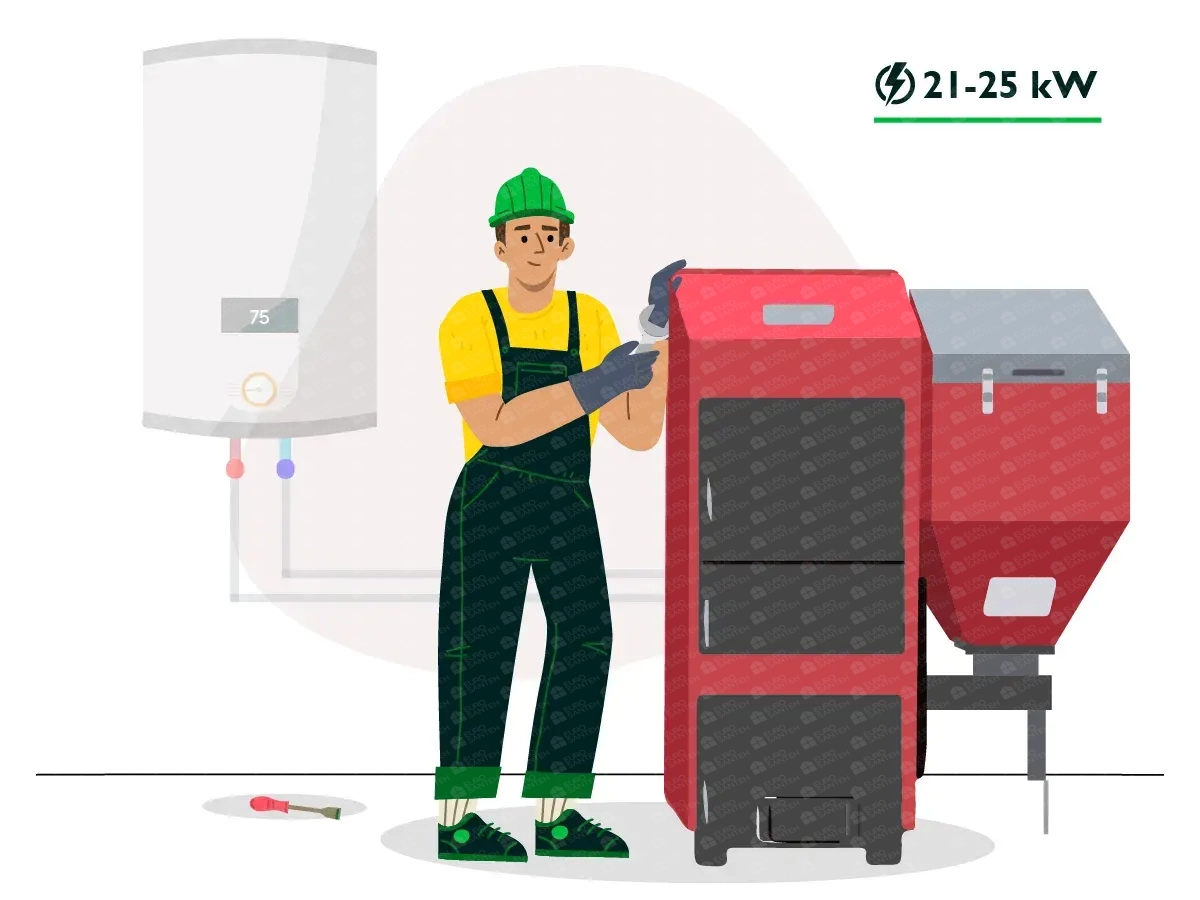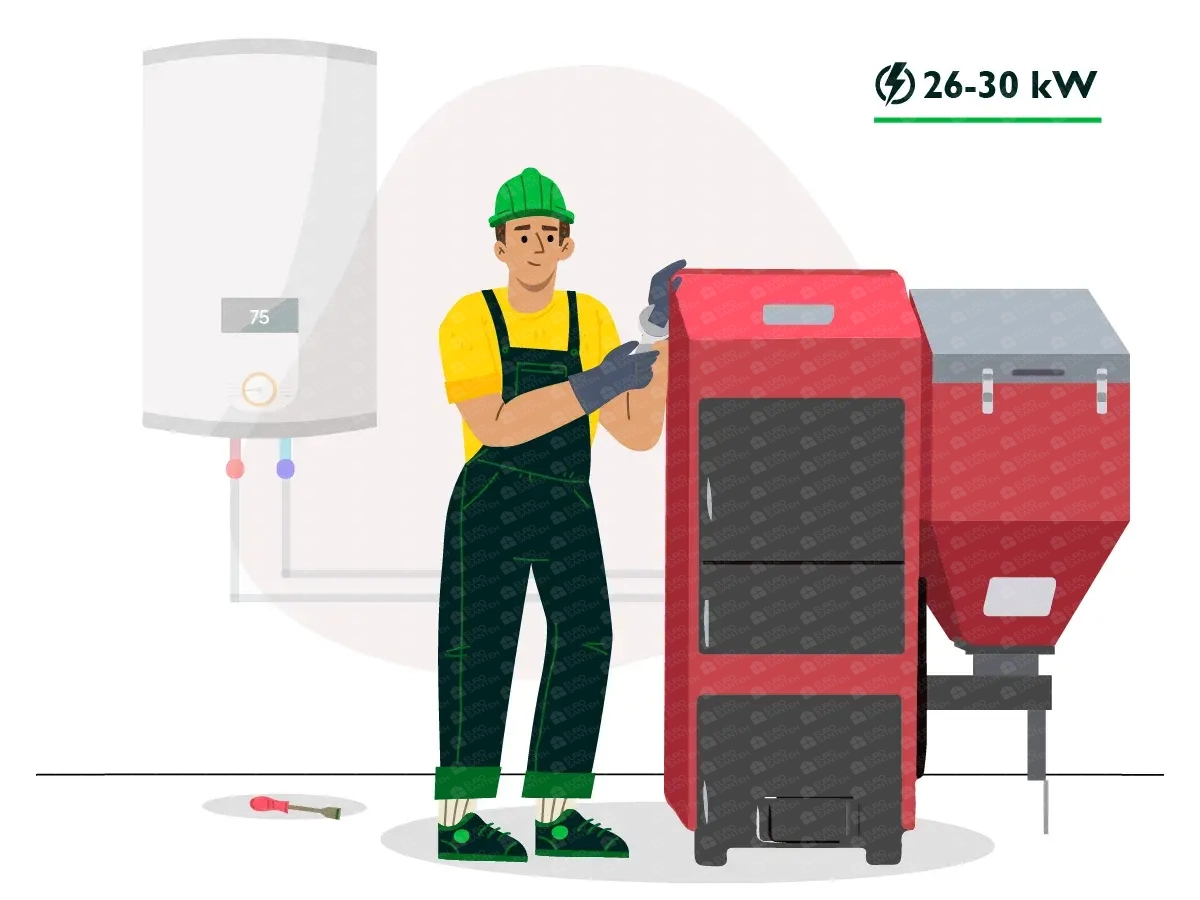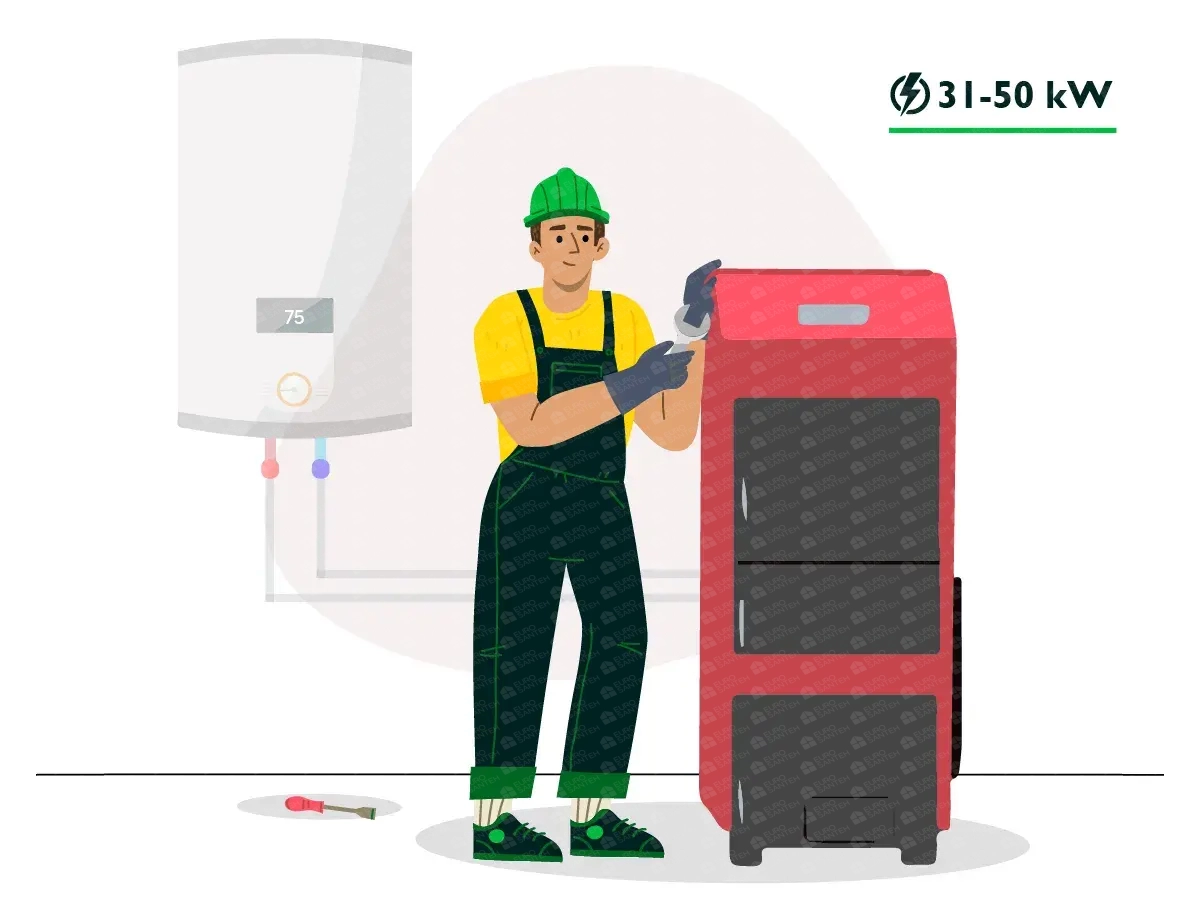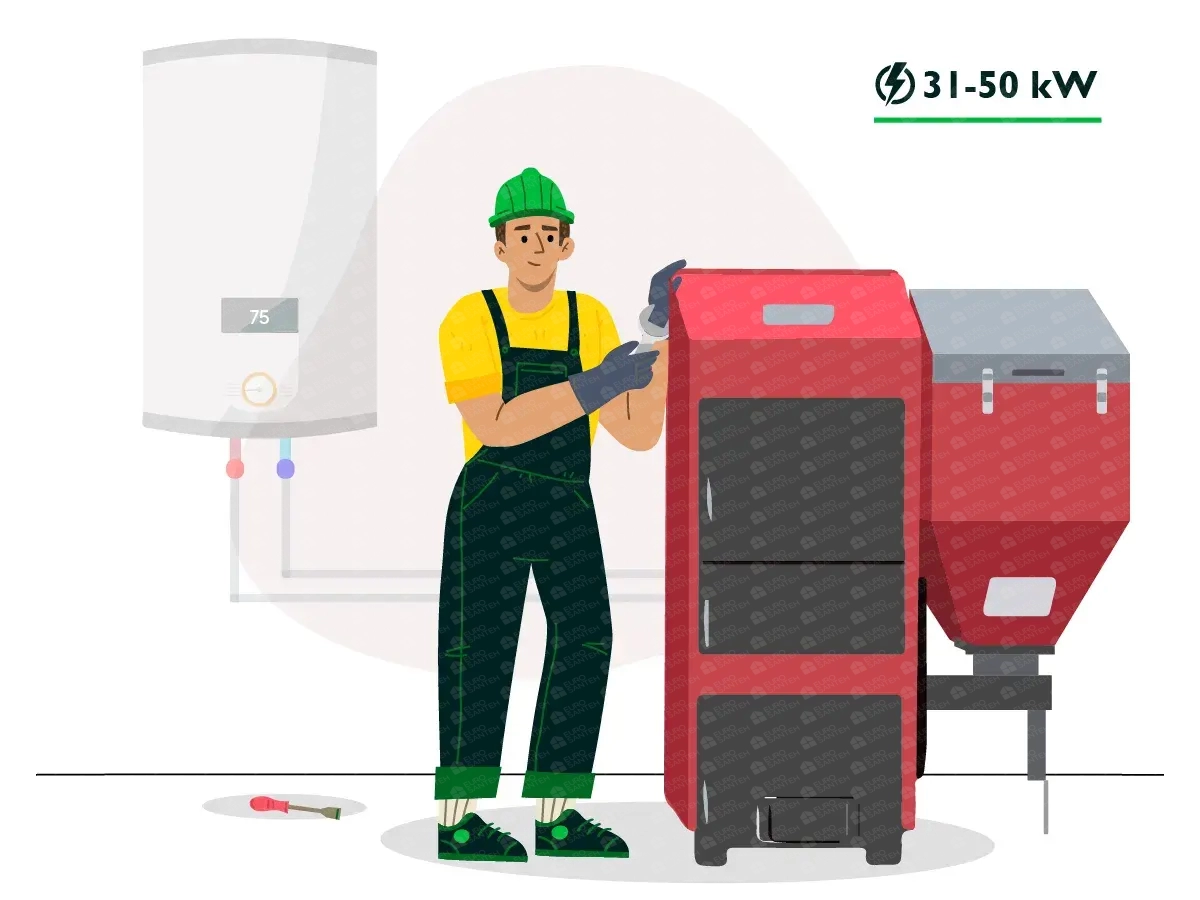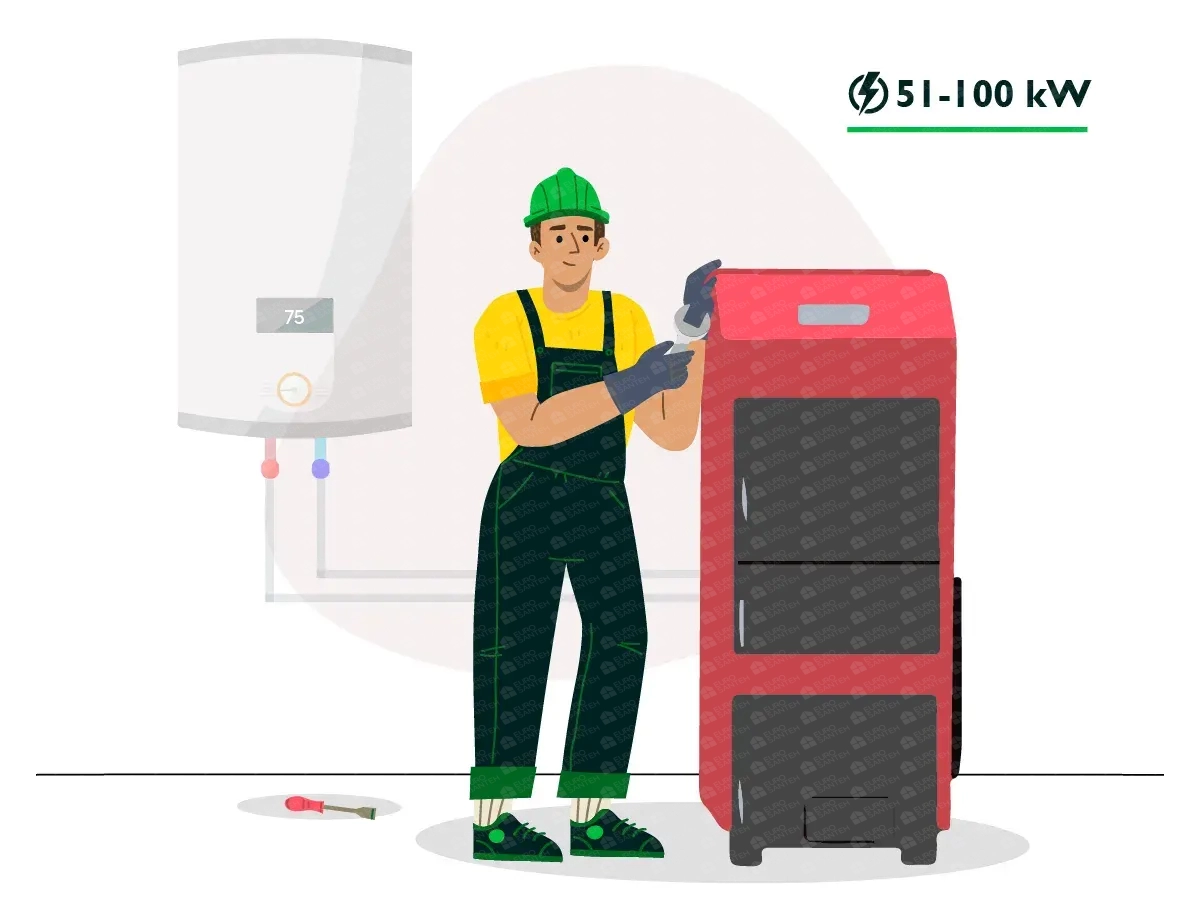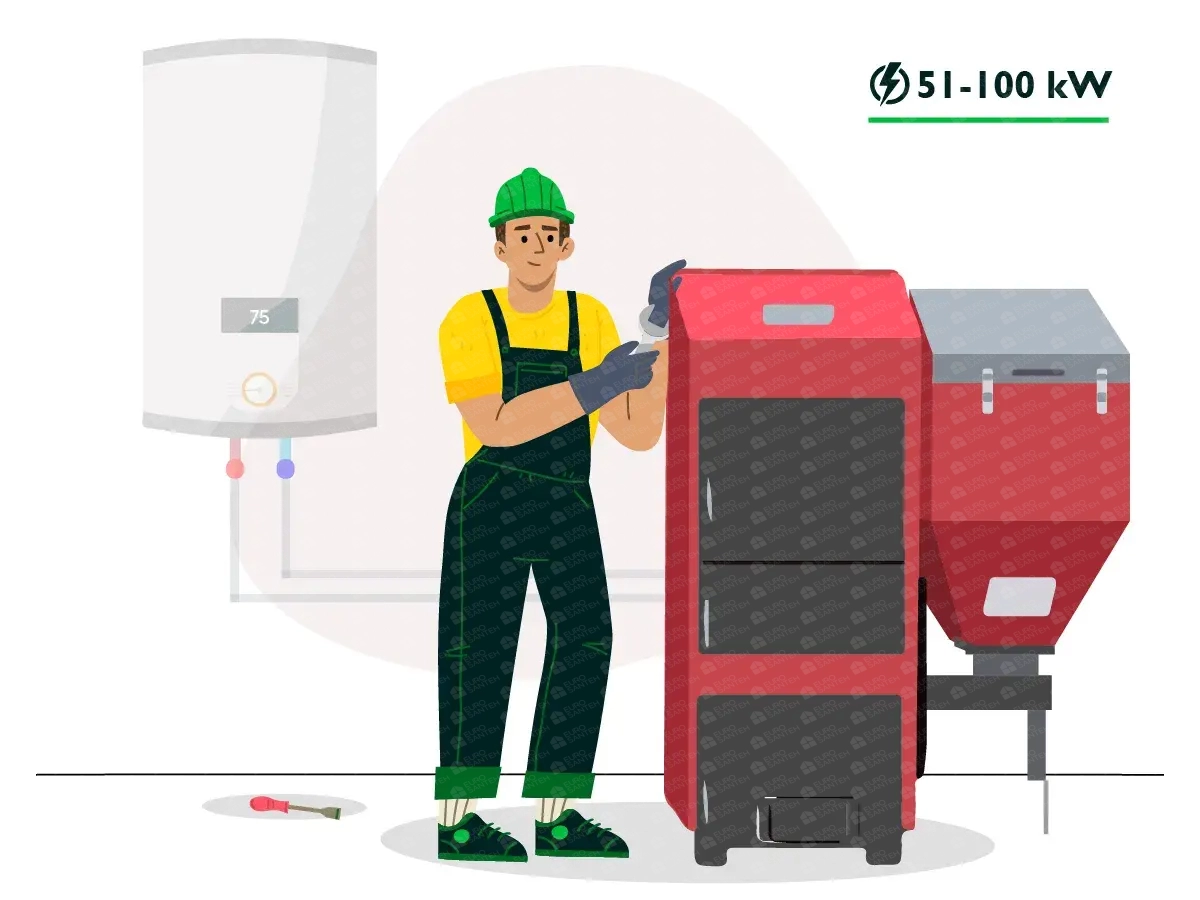Installation of a solid fuel boiler in Chisinau
The installation of a solid fuel boiler in a private house is a comprehensive process that requires careful planning, precise execution, and adherence to safety standards. Solid fuel boilers are a popular choice for homeowners who seek an autonomous and cost-effective heating solution. These boilers are versatile and can use various types of fuel, such as wood, coal, pellets, and briquettes, making them an attractive option for those looking to reduce dependency on fossil fuels and lower heating costs.
Selecting the Right Boiler
The first step in installing a solid fuel boiler is selecting the appropriate equipment. The market offers a wide range of solid fuel boilers, each with different power ratings, designs, and features. When choosing a boiler, it's essential to consider the size of the house, the level of insulation, and the local climate. A boiler that is too small will not provide sufficient heat, while one that is too large will be inefficient and waste fuel. Consulting with a heating professional can help determine the optimal boiler specifications for your home’s heating needs.
Preparing the Installation Site
Once the boiler is selected, the next step is preparing the installation site. A solid fuel boiler requires a dedicated space, typically a boiler room or utility room. This space must be adequately ventilated to ensure safe combustion and to prevent the buildup of harmful gases. The walls and floor of the boiler room should be made of non-combustible materials to enhance fire safety. Additionally, there should be ample space around the boiler for maintenance and fuel storage.
Installing the Chimney
A crucial component of the installation process is the chimney. The chimney is responsible for venting combustion gases safely out of the house. It must be constructed following all relevant regulations and standards. Typically, stainless steel or ceramic chimneys are used due to their high resistance to heat and corrosion. Ensuring adequate draft in the chimney is vital for the efficient operation of the boiler and for preventing smoke from entering the boiler room.
Boiler Installation
With the site and chimney prepared, the next step is the actual installation of the boiler. The boiler must be securely fixed in place to prevent any accidental movement or tipping. This often involves anchoring the boiler to the floor or mounting it on a stable platform. Following this, the boiler is connected to the heating system. This involves attaching pipes and fittings that must be leak-proof and capable of withstanding high temperatures.
Connecting to the Heating System
The solid fuel boiler needs to be connected to the home’s heating system and water supply. This connection is critical for ensuring that the heat generated by the boiler is distributed evenly throughout the house. The heating system should be filled with water according to the manufacturer's instructions to avoid airlocks, which can impede the boiler’s efficiency. Automatic air vents are often used to remove air from the system.
Electrical Connections and Safety Controls
In addition to the plumbing, the boiler requires electrical connections for its control systems. These controls include thermostats, safety cut-offs, and possibly a central heating timer. All electrical work must be carried out by a qualified electrician to ensure safety and compliance with local electrical codes. Properly set up controls will allow for the efficient operation of the boiler, maintaining the desired temperature while ensuring safety.
Testing and Commissioning
After the installation is complete, the next step is testing and commissioning the boiler. This involves checking all connections, configuring the automatic controls, and performing a trial run to ensure everything operates correctly. The trial run is essential to identify and rectify any potential issues before the boiler is put into regular use. During this phase, it is also important to verify that all safety systems are functional.
User Training
Once the boiler is operational, homeowners must be trained on how to use it correctly. This training should cover basic operating procedures, safety measures, and steps to take in case of a malfunction. The installation team should provide detailed instructions on how to feed the boiler, regulate the temperature, and perform basic maintenance tasks.
Regular Maintenance
Regular maintenance is vital for the longevity and efficient performance of the solid fuel boiler. Maintenance tasks include cleaning the chimney and heat exchanger, checking the condition of seals and automatic controls, and ensuring a steady supply of fuel. Scheduled maintenance should be performed by a professional technician to prevent breakdowns and ensure the boiler operates safely and efficiently.
Environmental Considerations
Using a solid fuel boiler has environmental implications that should be considered. While solid fuel can be more sustainable than fossil fuels, it still produces emissions that must be managed properly. The ash and other by-products from combustion should be disposed of correctly to minimize environmental impact. Moreover, choosing sustainably sourced fuel can further reduce the ecological footprint of your heating system.
Legal and Regulatory Compliance
Adhering to legal and regulatory requirements is crucial when installing a solid fuel boiler. This includes obtaining the necessary permits and undergoing inspections by local authorities. Compliance ensures that the installation meets all safety standards and avoids potential legal issues and fines.
Cost and Investment
Although the initial cost of installing a solid fuel boiler can be significant, the long-term benefits often justify the investment. Solid fuel is generally less expensive than other heating fuels, and the ability to use various types of fuel adds flexibility and cost savings. Over time, the savings on fuel costs and the boiler's efficiency can offset the initial installation expenses.
Conclusion
The installation of a solid fuel boiler is a comprehensive process that requires careful planning, professional installation, and regular maintenance. By following the correct procedures and ensuring compliance with all regulations, homeowners can enjoy a reliable and efficient heating system that provides warmth and comfort throughout the year. Investing in a high-quality solid fuel boiler and ensuring its proper installation and maintenance will yield long-term benefits in terms of durability, efficiency, and environmental sustainability.
